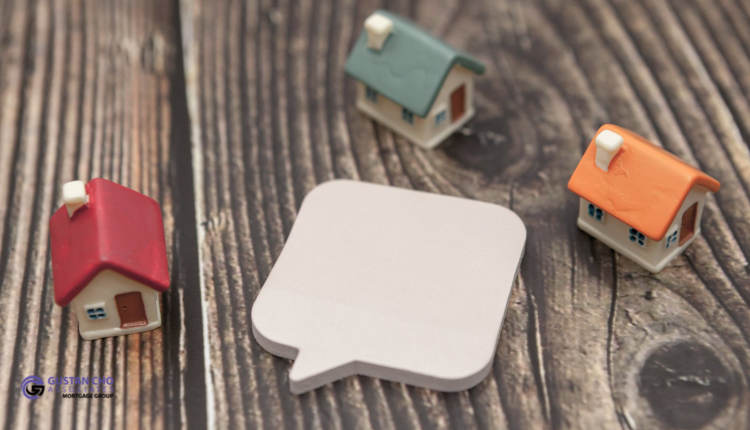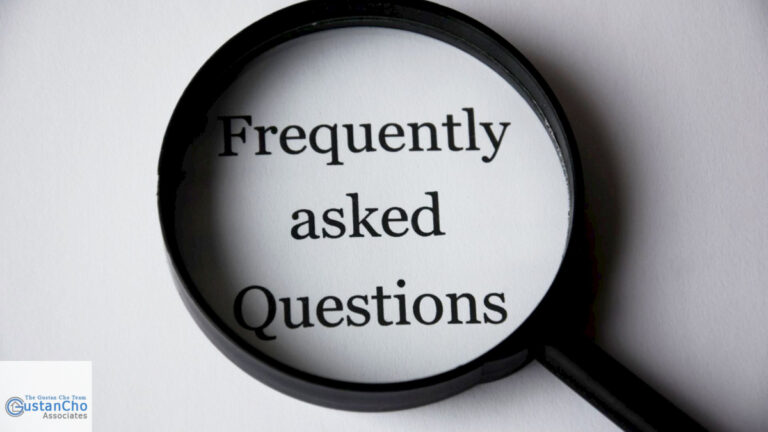First-Time Home Buyers FAQ on Qualifying For Mortgage
Buying your first home is exciting but let’s be real, it can also feel overwhelming. Between credit scores, income requirements, loan types, and paperwork, it’s easy to get confused. That’s why we’ve created this detailed First-Time Home Buyers FAQ on Qualifying for a Mortgage. Either you are just starting your journey or getting ready to apply, this guide will give you the clear answers you need to move forward with confidence.
First-Time Home Buyers FAQ on Qualifying For Mortgage
In this blog, we will cover and discuss first-time home buyers FAQ on qualifying for a mortgage. With skyrocketing home prices, many renters are seriously considering buying their first home. Home prices have been skyrocketing for the past ten years. HUD and the FHFA have been increasing FHA and conforming loan limits for the past six years. The combination of strong demand for housing and a shortage of inventory is creating a higher than average demand for housing. This is nationwide. Mortgage rates have been increasing to three year highs. The rising mortgage rates is not making a dent in the housing market. The housing market is still strong and there is no signs of any market correction.
First-Time Home Buyers FAQ on Getting Priced out of the Booming Housing Market
Many young folks and renters are fearing they will be priced out of the housing market. The increasing mortgage rates are not putting a dent in slowing down the housing market. There is a major demand for homes while there is a shortage of homes. Many first-time buyers FAQ includes what kind of money for the down payment, closing costs, credit and credit scores, and dozens of more questions which we will address in this blog. It is not often home buyers purchase homes.
First-Time Home Buyers FAQ on Buying a Home From Renters
The team at Gustan Cho Associates, empowered by NEXA Mortgage, LLC NMLS 1660690 is licensed in 48 states and has lending partnerships with over 160 wholesale mortgage lenders. Gustan Cho Associates’ regional branch NMLS 2315275 is located in Oakbrook Terrace, Illinois. We have every available mortgage option for homebuyers with great credit, poor credit, no income documentation, self-employed borrowers, and borrowers with high debt to income ratios. Gustan Cho Associates get dozens of first-time home buyers FAQ daily. We will go over the most common first-time home buyers FAQ by our borrowers.
First-Time Home Buyers FAQ on Qualifying for Mortgage: 2025 Guide
Buying your first home is exciting but if you’re unsure how to qualify for a mortgage, you’re not alone. Many first-time home buyers have questions about credit scores, income, down payments, and the mortgage process.
In this guide, we’ll use simple language and real answers to the most common questions first-time home buyers ask about qualifying for a mortgage. Whether you’ve just started thinking about homeownership or are ready to apply, this blog has everything you need to take that next step.
At Gustan Cho Associates, we help first-time home buyers qualify for mortgages every day, even those with low credit scores, high debt-to-income ratios, or unique income situations.
Most Common First-Time Home Buyers FAQ on Buying a Home
There are many First-Time Home Buyers FAQ Gustan Cho Associates Mortgage receives daily. Here are common First-Time Home Buyers FAQ:
- What is a pre-approval?
- What are the current mortgage rates?
- What are the minimum credit score requirements?
- How much down payment is required on home purchases?
- What are the loan limits in my area?
- What is the maximum debt to income ratio requirements?
- What are mortgage overlays?
- Do all FHA, VA, USDA, Conventional Lenders have the same guidelines?
- What are closing costs
We will cover the above first-time home buyers FAQ in this blog. Things that we did cover, please feel free to email us at gcho@gustancho.com.
Understanding The Steps Of The Home Buying And Mortgage Process

There are steps in the home buying and mortgage process. The best way to answer most first-time home buyers FAQ is by explaining how the home buying process works. Here are the steps of the home buying and mortgage process:
- Qualify for a mortgage with a loan officer
- The pre-approval stage of the mortgage process is the most important step
- Borrowers who get a last-minute mortgage denial and/or stress during the mortgage process are because they were not properly qualified by their loan officers
- Loan officers should check and double check agency mortgage guidelines and their company’s overlays
- Make sure there are no credit disputes prior to issuing a pre-approval
- Make sure all documents are thoroughly reviewed
- Ask borrowers if there are any judgments, tax liens, and other public records not being reflected on credit reports
- Run file through automated underwriting system
- Make sure borrowers meet all conditions from the AUS
- How much money do I need to buy a house?
Is It True That Buying Is Cheaper Than Renting?
There are many instances where buying is cheaper than renting. To rent a 2 bedroom apartment normally costs $1,000 to $2,000 per month depending on the area. The principal and interest on a $100,000 mortgage loan balance are $530 per month. However, homeowners need to add mortgage insurance, property taxes, and homeowners insurance.
Buying Versus Renting Price Comparison
On a typical $100,000 mortgage, the PITI may be $800 or so per month. In this particular example, buying a home is cheaper than renting. Another benefit of owning a home is that interest expense is deductible from income taxes. Rents are not tax-deductible. Homeowners can enjoy the benefit of gaining equity from their investments. As time passes, the home will appreciate and the loan balance will become lower and lower. After the mortgage term is up, the home will be free and clear with no loan balance.
How Much Money Is Needed To Purchase A Home
Homebuyers can purchase homes with little to no down payment. USDA and VA loans do not require any down payment. FHA loans require a 3% down payment. Fannie Mae and Freddie Mac require a 3% to 5% down payment on conventional loans. Down payments can be gifted by family members. There are closing costs with all home purchase and refinance transactions. Most of our borrowers do not have to worry about closing costs. Closing costs can be covered with seller concessions and/or lender credit. To qualify for a mortgage or if you have any questions about this blog on first-time home buyers FAQ, please contact us at Gustan Cho Associates at 800-900-8569 or text us for a faster response if you have further questions. Or email us at gcho@gustancho.com. We are available 7 days a week, on evenings, weekends, and holidays.
Tips for First-Time Home Buyers to Qualify for a Mortgage
- Look over your credit history for inaccuracies and dispute them promptly
- Don’t open new accounts before applying—it can hurt your score.
- Pay down credit cards to reduce your DTI.
- Save for your down payment and closing costs.
- Get pre-approved before you start house hunting.
- Work with a lender who understands first-time buyers.
Final Thoughts: You CAN Qualify for a Mortgage as a First-Time Home Buyer
Don’t give up if you’ve been told “no” or feel unsure where to start. With the right help, qualifying for a mortgage as a first-time home buyer is more possible than ever in 2025. Let our expert team walk you through the process—from pre-approval to closing day.
First-Time Home Buyers FAQ on Qualifying For Mortgage
1. How can first-time home buyers qualify for a mortgage?
If you are a first-time home buyer, you need a steady income, a manageable debt-to-income ratio, a solid credit history, and cash for upfront costs like closing and down payment. Lenders will review your complete financial picture.
2. What credit score do first-time home buyers need to qualify for a mortgage?
First-time buyers often get approved for FHA loans with a credit score 580 and around 620 for conventional loans.
3. Can first-time home buyers qualify for a mortgage with student loans?
Yes! Many first-time homebuyers qualify for a mortgage, even with student loans. Lenders will look at your monthly debt and income, which shows you can keep up with the mortgage payment.
4. Do first-time home buyers need a big down payment to qualify for a mortgage?
No! First-time home buyers can qualify for a mortgage with as little as 3% down on conventional loans and 3.5% down with FHA loans. VA and USDA loans require 0% down for eligible buyers.
5. What income do first-time home buyers need to qualify for a mortgage?
There’s no set amount. Instead, lenders look at your debt-to-income ratio (DTI) and how much of your monthly income goes to debt. Most loan programs allow up to 43% DTI, but FHA and VA allow more with compensating factors.
6. Can first-time home buyers qualify for a mortgage if they just started a new job?
Yes, you can still qualify. If you have a job offer letter or started a new job in the same field, many lenders will still approve your mortgage as a first-time home buyer.
7. Do first-time home buyers qualify for any special programs or help?
Yes! Many states offer first-time homebuyer assistance, such as grants, forgivable loans, or down payment help. These tools can open the door to homeownership for you and lower upfront costs.
8. How long does it take for first-time home buyers to qualify and close on a mortgage?
The timeline depends on your lender and loan type. Still, first-time home buyers can typically qualify and close on a mortgage in 30 to 45 days, sometimes faster with the proper documents.
9. Can first-time home buyers qualify for a mortgage with past credit problems?
Many first-time home buyers still qualify for a mortgage, even with late payments or past bankruptcy. FHA, VA, and non-QM loans are designed to help borrowers with less-than-perfect credit.
10. What’s the first step for first-time home buyers to qualify for a mortgage?
Start with a pre-approval. A lender will review your income, credit, and debt, then tell you how much home you can afford. This is the first and most crucial step in qualifying for a mortgage.







